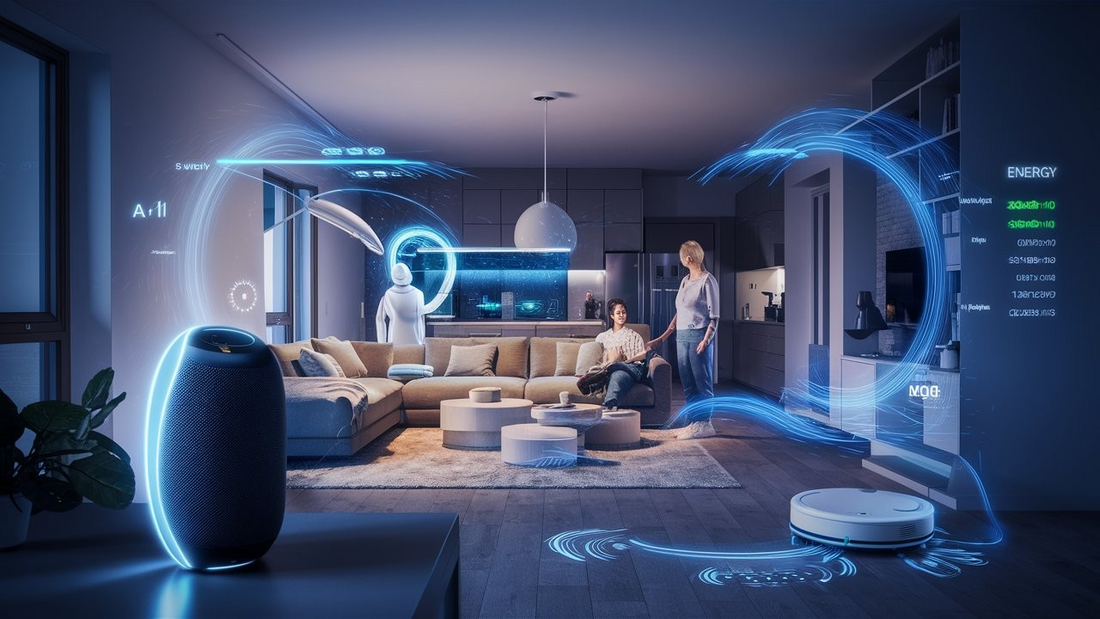
Building a Renewable Energy Smart Home: A Tech Guide
Share
In today's technology-driven world, the concept of Building a renewable energy smart home has become more than just a futuristic dream; it is a practical and necessary step towards a sustainable future. With the pressing need to reduce carbon footprints and the increasing demand for energy-efficient solutions, tech professionals and enthusiasts are at the forefront of creating homes that are not only smart but also environmentally friendly.
The journey to Building a renewable energy smart home involves integrating the latest technology with sustainable practices. The goal is to harness renewable energy sources while ensuring that the home remains efficient, comfortable, and intelligent. This article delves into the essential components and steps involved in creating such a home, providing insights and tips for tech-savvy readers.

Understanding Renewable Energy Options
Before diving into the specifics of smart home technology, it is crucial to understand the range of renewable energy options available. Solar power, wind energy, and geothermal systems are some of the most popular choices. Each has its own set of advantages, and the choice largely depends on geographic location, budget, and personal preference.
Solar energy remains the most accessible and widely used renewable resource for homes. By installing solar panels, homeowners can convert sunlight into electricity, significantly reducing dependency on traditional power grids. For tech enthusiasts, the integration of solar panels with smart home systems offers exciting possibilities for automation and monitoring.
Integrating Smart Technology
The backbone of any smart home is its ability to automate and control various systems efficiently. For a renewable energy smart home, this includes integrating technology that can manage energy consumption, optimize power use, and provide real-time data on energy production and usage.
Smart thermostats, energy-efficient lighting, and intelligent appliances are just the beginning. Advanced home automation systems can now coordinate with renewable energy sources, such as solar or wind, to optimize energy use. For instance, smart devices can schedule high-energy tasks during peak energy production times, maximizing efficiency and savings.
For those interested in exploring the latest in smart home technology, check out Best Tools for DIY Smart Homes for more information on integrating tech innovations into your project.
Energy Storage Solutions
An essential aspect of a renewable energy smart home is the ability to store energy for later use. Energy storage systems, such as batteries, allow homeowners to save excess energy generated during the day for use at night or during cloudy periods. This not only ensures a steady energy supply but also contributes to a more stable and reliable home energy system.
For tech professionals, the selection of energy storage solutions is crucial. Factors to consider include capacity, efficiency, and integration with existing home systems. Companies are continually innovating in this space, providing a range of options from large-scale battery systems to smaller, modular units.
Sustainable Home Automation
Creating a truly sustainable smart home goes beyond just energy production and storage. It involves a holistic approach that includes water conservation, waste management, and sustainable building practices. Smart irrigation systems, automated waste sorting, and eco-friendly materials are all part of the sustainable smart home ecosystem.
For practical tips on how to incorporate these elements, visit Low-Cost Sustainable Home Automation Projects.
The Future of Renewable Energy Smart Homes
The future of Building a renewable energy smart home is bright, with rapid advancements in technology continuing to push the boundaries of what is possible. As artificial intelligence and machine learning become more integrated into home systems, the potential for even greater efficiency and personalization grows.
Tech professionals and enthusiasts are uniquely positioned to lead the way in this field, leveraging their skills and knowledge to design and implement cutting-edge solutions. For a glimpse into future trends, explore Sustainable Living with Eco-Friendly Home Automation.
As we move towards a more sustainable future, the role of renewable energy smart homes will only become more significant. By embracing these technologies and integrating them into our homes, we can contribute to a healthier planet and a smarter, more efficient way of living.
FAQ
What are the benefits of a renewable energy smart home?
A renewable energy smart home offers numerous benefits, including reduced energy costs, lower carbon emissions, and increased energy independence. Additionally, smart technology provides convenience, control, and improved efficiency, enhancing the overall living experience.
How can smart technology optimize energy use?
Smart technology can optimize energy use by automating systems to run during peak energy production times, monitoring energy consumption in real-time, and adjusting settings based on occupancy and usage patterns. This ensures that energy is used efficiently and waste is minimized.
What are the initial costs involved in building a renewable energy smart home?
The initial costs can vary widely depending on the choice of renewable energy systems, smart technology, and home size. While the upfront investment may be significant, the long-term savings on energy bills and the potential increase in property value can offset these costs over time.
